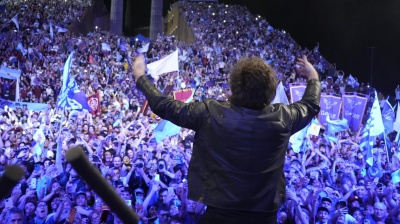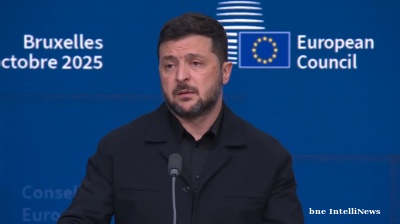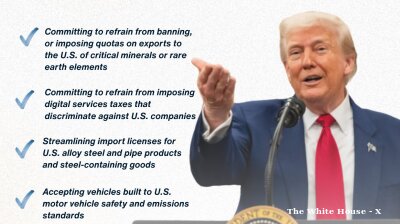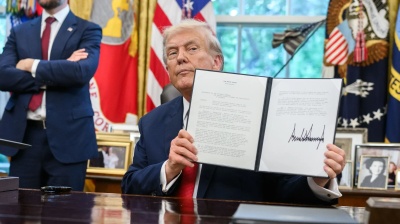A senior US Republican senator has warned that Venezuelan President Nicolás Maduro's time in power is running out and suggested he leave the country, as military tensions in the Caribbean continue to escalate following Washington's authorisation of covert CIA operations aimed at regime change.
Rick Scott, a Florida Republican who sits on the Senate Armed Services and Foreign Relations committees, told CBS News on October 26 that Maduro's "days are numbered" and predicted that "something's gonna happen" to end his rule, either through internal or external forces.
"If I was Maduro, I'd head to Russia or China right now," Scott said, though he added he would be "surprised" if the US were to launch an invasion of Venezuela.
Scott's remarks represent the most explicit call yet from a senior American lawmaker for the Venezuelan strongman to give up power, and come as Washington pursues what could become one of the most aggressive US interventions in Latin America in decades. The senator suggested that Maduro's removal would lead to "the end of Cuba", saying: "America is gonna take care of the Southern Hemisphere."
His comments came as a US warship docked in Trinidad and Tobago, just miles off Venezuela's coast, to participate in joint exercises. The deployment underscores the expanding American military presence in the southern Caribbean, which now includes approximately 10,000 personnel supported by eight surface vessels and a nuclear submarine.
The military build-up follows President Donald Trump's extraordinary confirmation earlier this month that he had signed a classified "presidential finding" authorising the Central Intelligence Agency to pursue covert operations in Venezuela. The legal instrument grants the CIA sweeping powers that American officials acknowledge could extend to operations on Venezuelan soil.
"We are certainly looking at land now, because we've got the sea very well under control," Trump said, suggesting American operations could soon move beyond maritime strikes to Venezuelan territory.
Venezuela has responded with escalating alarm to the growing American military presence. Foreign Minister Yván Gil issued a stark warning to neighbouring Trinidad and Tobago, claiming the CIA is planning a false flag operation to attack a US military vessel stationed on the island and blame Venezuela to justify aggression against Caracas.
Gil appealed to Trinidad and Tobago Prime Minister Kamla Persad-Bissessar to "assume her responsibility to the Caribbean and to history: either she sides with peace or she sinks into the CIA's agenda." He claimed that "a CIA-funded criminal cell linked to this covert operation is being dismantled on our territory," whilst asserting that "Venezuela will not fall for provocations" but "we will defend our sovereignty without hesitation."
Since September, US forces have conducted strikes on vessels in Caribbean waters that Washington claims were linked to drug-smuggling networks, killing at least 43 people.
Venezuelan officials have denounced the attacks as extrajudicial killings designed to destabilise the government and have mobilised troops along the country’s coast and borders, whilst the military has deployed 5,000 Russian-made Igla-S anti-aircraft missiles nationwide to strengthen air defences.
Trump has defended his Venezuela strategy by claiming Caracas deliberately "emptied their prisons into the United States of America" and facilitated narcotics smuggling, though US official data shows that the amount of cocaine coming from Venezuela is negligible, while fentanyl is mostly trafficked through Mexico. In August, Washington doubled its bounty for Maduro's capture to $50mn, describing him as head of an alleged drug trafficking organisation.
The hawkish strategy marked a departure from earlier dialogue attempts by special envoy Richard Grenell and has been spearheaded by Secretary of State Marco Rubio, a son of Cuban immigrants who views Maduro's fall as a necessary step for Cuba to rid itself of the communist dictatorship.
Like the Biden administration before it, Trump’s White House considers Maduro's regime illegitimate following last year's disputed election, when the incumbent refused to cede power in what many independent observers deemed a rigged vote. That view is shared across Western capitals and much of Latin America, and opposition leader Maria Corina Machado, who remains in hiding in Venezuela, was recently awarded the Nobel Peace Prize for her "struggle to achieve a just and peaceful transition from dictatorship to democracy.”
However, Russia and China have backed Maduro with diplomatic support and defence cooperation, warning against foreign interference.
On October 27, Russian President Vladimir Putin signed into law a Strategic Partnership Treaty with Venezuela that deepens bilateral cooperation in energy, security and defence.
Russian Deputy Foreign Minister Sergei Ryabkov said the treaty's ratification was significant "given the current situation in which Venezuela is under unprecedented energy pressure — including direct military pressure — from the United States."
Officials in Caracas argue that Washington's ultimate objective is seizing control of the country's vast oil reserves.
Analysts have warned that the military build-up and unprecedented CIA authorisation suggest Washington may be laying the groundwork for comprehensive regime change operations, potentially including direct military intervention.
News
Category 5 hurricane Melissa bears down on Jamaica with Haiti and Cuba in storm's path
A catastrophic Category 5 hurricane was bearing down on Jamaica on Monday, October 27 afternoon with sustained winds of up to 282kph (175mph), threatening to become the strongest storm the Caribbean island has ever experienced.

Milei celebrates resounding victory in Argentina's midterm elections
Argentine President Javier Milei scored a major win for his La Libertad Avanza (LLA) party in Argentina's October 26 midterm legislative elections, as the party obtained approximately 40.84% of the nationwide vote with 99.14% of the votes counted.

Zelenskiy accuses China of aiding Russia’s war effort through industrial and military support
Ukrainian President Volodymyr Zelenskiy accused China of materially supporting Russia’s military-industrial complex, providing key technologies and resources that have enabled Moscow to sustain and scale its war effort against Ukraine.

US Treasury Secretary Bessent blasts “Russian propagandist” special envoy Dmitriev in Washington PR debacle
A trip to Washington by the Kremlin’s special business envoy Kirill Dmitriev days after the US imposed new oil sanctions turned into a debacle after US Treasury Secretary Scott Bessent blasted him as a “Russian propagandist.”

.jpg)
_1761305900.jpg)

